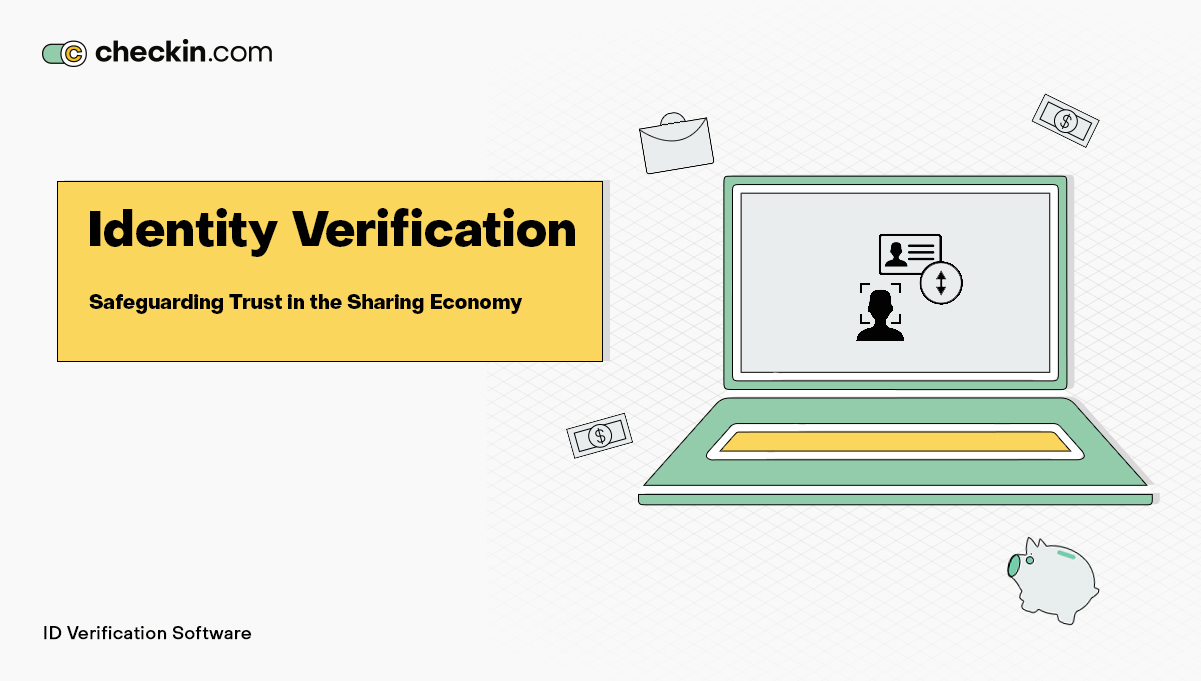
Identity Verification: Safeguarding Trust in the Sharing Economy
4 May 2023
From catching a ride with Uber to booking a stay through Airbnb, this dynamic economic model is all about sharing or renting assets directly from individuals, often facilitated by a digital platform. A crucial one being, how do we trust the person on the other side of the transaction?
This is where identity verification for sharing economy platforms steps into the limelight.
Identity Verification: A Pillar of Trust and Safety
Id verification service is no longer a luxury; it’s an absolute necessity. In the sharing economy, we’re dealing with real people and real assets. The driver behind the wheel, the host of the apartment, or the handyman fixing your leaky faucet; they’re all individuals who need to be who they say they are.
Ensuring this trust is a complex task, yet some forward-thinking service providers are developing solutions designed to verify identities in this bustling ecosystem.
- Automated Document Verification: Technology that scans and validates government-issued IDs, like passports or driver’s licenses, offering a robust line of defense against fraud.
- Facial Recognition Technology: By comparing a selfie with the picture on a verified ID, this tech helps confirm the person providing the service is the ID holder.
- Background Checks: A crucial step that delves into public records, checking for any red flags from criminal activity to driving offenses.
- Data Analysis: Advanced algorithms sift through data points, checking consistency, and flagging any anomalies for further review.
Embracing Tech-Driven Identity Verification Solutions
The beauty of these emerging solutions lies in their blend of technology and human oversight. Advanced algorithms and AI can sift through data and validate documents with exceptional speed and accuracy, yet there’s always a human in the loop, ensuring that the system’s decisions make sense in the real world.
Towards a Secure Sharing Economy
With these advancements in identity verification, we’re setting the stage for a safer, more secure sharing economy. Service providers must continually innovate and adapt to the evolving landscape, ensuring that trust and safety are always at the forefront of their platform. After all, trust isn’t just a nice-to-have in the sharing economy – it’s the very foundation it stands on.
Regulatory Compliance and User Experience
While identity verification solutions bring a multitude of benefits, they also pose certain challenges. One of the key hurdles involves regulatory compliance. Different regions have different rules regarding data privacy and identity verification.
Service providers need to ensure their solutions are not only robust and efficient but also comply with the various regulations in the regions they operate.
Moreover, while security is of paramount importance, user experience can’t be sacrificed. The process needs to be straightforward and seamless, ensuring users don’t face unnecessary roadblocks while signing up or engaging with the platform.
Innovations Bridging the Gap: Biometrics and Blockchain
To address these challenges, service providers are harnessing the power of innovative technologies. Biometrics, such as facial recognition and fingerprint scans, are being increasingly integrated into identity verification processes.
Blockchain technology, known for its immutability and transparency, presents a promising solution. Blockchain-based identity verification systems can provide a secure, decentralized way of storing and verifying user identities. This method not only enhances security but also gives users control over their data, addressing concerns around data privacy.
The Role of Community in the Sharing Economy
User reviews and ratings are invaluable in the sharing economy, helping to build a trust-based community. Encouraging users to share their experiences and rate their interactions helps to reinforce the trust engendered by identity verification systems.
Conclusion
As the sharing economy continues to flourish, the importance of robust identity verification systems will only increase.
Through the fusion of innovative technologies and community engagement, we’re shaping a future where users can share and access services with confidence. The road ahead may be filled with challenges, but with every step we take, we’re fostering a more secure, trustworthy, and thriving sharing economy.
FAQ
What is identity verification?
It’s a process used to confirm a person’s identity, often through document verification and biometric techniques.
Why is identity verification important in the sharing economy?
It’s crucial for establishing trust between users, enhancing safety, and ensuring compliance with regulations.
How is technology used in identity verification?
Technologies like AI, facial recognition, and data analysis are used to verify documents, compare images, and flag suspicious activity.
What’s the future of identity verification in the sharing economy?
As the sharing economy grows, the demand for reliable identity verification will increase. Expect more sophisticated, tech-driven solutions that blend speed, accuracy, and human oversight.